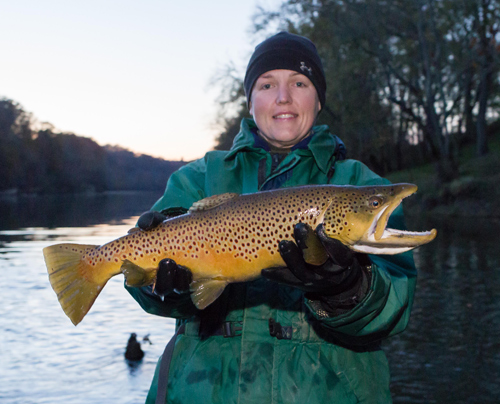BY Lee McClellan
FRANKFORT, Ky. – It is the time of year anglers must make an investment in their future fishing. Current 2014-2015 fishing licenses expire this weekend. If you plan to fish on or after March 1, you’ll need a new fishing license.
A Kentucky resident annual fishing license sets you back $20. This isn’t as cheap as it was 20 years ago, but it is still a great bargain for all you receive in return.

“We do not receive General Fund state tax dollars for our funding,” said Jeff Ross, assistant director of fisheries for the Kentucky Department of Fish and Wildlife Resources. “Our funding is reliant on license sales and the federal monies that go along with them. The anglers of Kentucky fund the fisheries division.”
For each fishing license sold, the federal government sends monies back to Kentucky from excise taxes on fishing tackle, trolling motors, electronic sonar units for boats, commonly called fish finders, and boat motor fuels.
. The Federal Aid in Sport Fish Restoration Act is the legislation empowering the collection of monies and dispersal back to the fisheries divisions of state wildlife agencies across the country. Originally passed by Congress in 1950, the Wallup-Breaux Amendment to the Federal Aid in Sport Fish Restoration Act expanded the base of monies in 1984.
“It is a user pay and user return system,” Ross said. “The anglers pay the money up front and they get it back in what our fisheries division does to benefit fish populations across Kentucky.” Funding from fishing license sales powers the annual stocking of over 5.5 million fish in Kentucky waters.
These monies fund the operation of the two hatcheries that provide fish for the Fishing in Neighborhoods stockings of bass, catfish, bluegill and trout.
“Without these hatcheries, several popular sport fish species such as hybrid striped bass wouldn’t exist in Kentucky,” Ross said.
These hatcheries provide the fish to sustain the world class muskellunge fishing found in Cave Run, Buckhorn and Green River lakes. The same goes for the fantastic walleye fishing found in our reservoirs such as Laurel River Lake or Lake Cumberland.
These monies also provide for the scientific management of the state’s fishery resources, the construction and maintenance of boat ramps and other fishing accesses such as carry-down canoe launch areas.
“These funds pay for fish habitat work, lake renovations and studies designed to better manage fish populations,” Ross said. “It provides money for maintenance of our smaller state-owned lakes.”
This money benefits future biodiversity in Kentucky as it helps fund the restoration of fish species such as lake sturgeon and alligator gar. The fisheries division assists in the recovery of negatively impacted fish populations.
Funding from the sale of Kentucky fishing licenses facilitated the planning and construction of Cedar Creek Lake, Kentucky’s only lake managed for trophy largemouth bass.
Not everyone has to purchase a fishing license. Kentucky residents fishing a pond or lake on land they own don’t need a fishing license, but their guests, and even blood relatives, must have a valid fishing license. Dependent children and tenants who live and work on the land also are license exempt if they are fishing a pond on the land on which they live.
Those who live outside of Kentucky, but own land here, must still purchase a fishing license if they plan to fish a lake or pond on their land. A general rule of thumb about residency: if you don’t possess a Kentucky driver’s license, then you are not a resident.
Anglers under the age of 16, military personnel on furlough for more than three days, those participating in Free Fishing Days in June and visitors fishing inside the boundaries of Mammoth Cave National Park also don’t need a fishing license. People fishing at pay lakes need either a valid fishing license or a permit issued by the pay lake operator.
Those who intend to keep trout or plan to fish the Cumberland River below Wolf Creek Dam must purchase a $10 trout permit. Kentucky residents certified as disabled or those 65 or older get their fishing license and trout permit with the $5 senior/disabled license.
A great deal is the resident combination hunting and fishing license for $30, a savings of $10 if bought separately. A resident one-day fishing license costs $7, while the same license for non-residents is $10. An annual non-resident Kentucky fishing license runs $55.
Remember to buy your fishing license if you plan to fish after this coming Sunday, March 1. You may purchase your fishing license in person at tackle stores, in the sporting goods section of major department stores and at county clerk offices across Kentucky. You may also buy a fishing license 24 hours a day by calling 1-877-598-2401 or online at the Kentucky Fish and Wildlife website at fw.ky.gov.
Author Lee McClellan is a nationally award-winning associate editor for Kentucky Afield magazine, the official publication of the Kentucky Department of Fish and Wildlife Resources. He is a life-long hunter and angler, with a passion for smallmouth bass fishing.


Be the first to comment